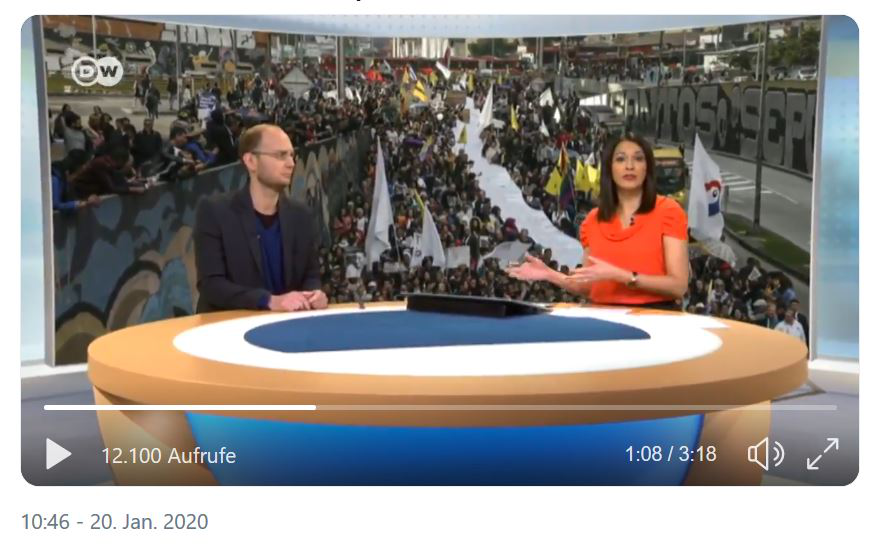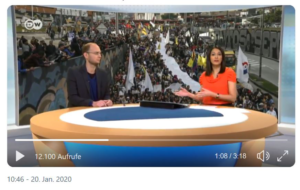
“They are killing those who are fighting for peace”: Stefan Peters from the DW studios in Berlin

Screenshot DW Online (24.01.2020)
CAPAZ Academic Director Prof. Dr. Stefan Peters, was consulted by the German international news network Deutsche Welle (DW) about the threats to and murders of female and male social leaders in Colombia in the early days of 2020.
In the special report from the DW television studios in Berlin, Prof. Dr. Peters pointed out two key characteristics to understand what today is shown to be one of the most violent periods since the end of the conflict with the FARC-EP. The first is impunity: those who attempt against the lives of social leaders in the country are rarely punished. The second has to do with the victims: “they are murdering those who fight for peace, against extreme inequality, against extractivism and mining, against drug trafficking”; that is, there is an interest in silencing their voices.
For the academic and expert in peace studies, who is also a professor in this area at the Justus Liebig University Giessen, the figures show that the measures taken by the government since the signing of the Final Agreement are not sufficient, and the resources allocated to implement plans to safeguard the lives of social leaders are scarce.
DW has contrasted the figures presented by the Office of the High Commissioner for Human Rights (OHCHR), which report at least ten leaders killed during the first thirteen days of the year, with those provided by NGOs, which report at least 19 killed during the same period.
In this context, several political figures in Colombia have received death threats through pamphlets in recent days, among them the recently elected mayor of Bogotá, Claudia López, and the President of the Partido Fuerza Alternativa Revolucionaria del Común – FARC, Rodrigo Londoño. Fundación Paz y Reconciliación denounces the alleged responsibility of the self-styled Águilas Negras.
And what about peace in Colombia?
“To build a stable and lasting peace, the Agreements need to be implemented” says Dr. Peters, but beyond this, “there are issues that are missing”. He says there are roots of the violence that are not being addressed: extreme inequality, extractive development, and illegal economies.
Finally, Peters concludes with an open question that invites us to reflect on the peacebuilding and social model being pursued in Colombia: “How much inequality does peace endure”.
See the full interview from the DW studios in Berlin (taken from DW Twitter)
(Text NW 10-2020: Carlos Andrés García, English version: Tiziana Laudato)



